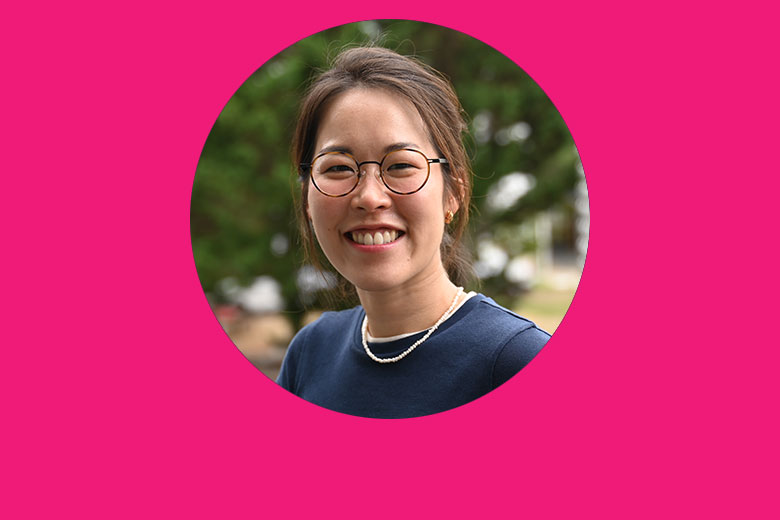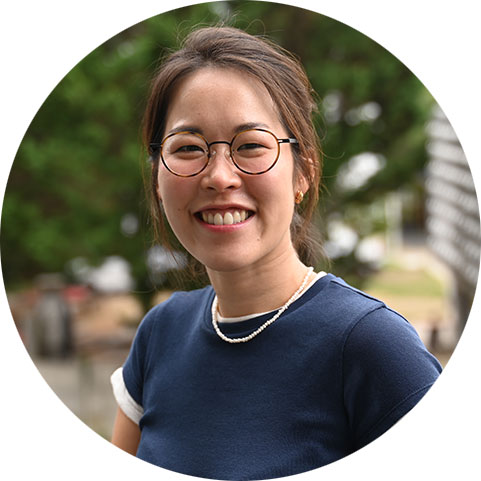
Interview: Ha-Rang Kim
 Having become a service unit of the University of Bordeaux in 2022, the Bordeaux School of Neuroscience (BSN) has made a significant contribution to Bordeaux Neurocampus for the past 10 years, whether in terms of scientific activities, international appeal or the development of collaborations. In order to continue its development, it has recently welcomed Ha-Rang Kim to its team as Neuroscience Training Project Manager. We met with her.
Having become a service unit of the University of Bordeaux in 2022, the Bordeaux School of Neuroscience (BSN) has made a significant contribution to Bordeaux Neurocampus for the past 10 years, whether in terms of scientific activities, international appeal or the development of collaborations. In order to continue its development, it has recently welcomed Ha-Rang Kim to its team as Neuroscience Training Project Manager. We met with her.
Bordeaux Neurocampus: You are already familiar with the neuroscience environment in Bordeaux. Could you tell us about your background?
Ha-Rang Kim: Yes, I hold an international Master’s degree in Neuroscience from NeuroBIM, which I obtained at the university in 2017. I continued my studies with a thesis, co-supervised by Yann Humeau at the IINS and Cyril Herry at the Magendie Neurocentre. It focused on understanding the neural circuits involved in learning contextual fear memory and identifying the physiological mechanisms underlying the pathological form of generalisation of this memory. After defending it in November 2022, I continued at the IINS with a two-year postdoctoral contract. This allowed me to continue writing my article, which I hope to submit before the end of the year!
You are joining the Bordeaux School of Neuroscience. Could you remind us of its role?
The BSN is a fully equipped neuroscience research laboratory exclusively dedicated to training through experimental practice. In particular, it is responsible for organising the Cajal Advanced Neuroscience Training programme, with three to four sessions per year. This international training programme attracts renowned researchers, promising young researchers and numerous master’s and doctoral students of all nationalities throughout the year.
Other workshops and courses are also organised. For example, in 2025, the school will host and organise a summer school on pain, another on ‘introduction to experimental neuroscience’, as well as two workshops, one on precision psychiatry for the ECNP and the other for the GDR “Microglia and neuroinflammation”.
What services does the school offer?
In practical terms, the school offers a space that can accommodate more than 20 students at a time. It covers 500 m² on the second floor of the CARF and is equipped with laboratory facilities (biochemistry, cell biology, cell culture), an animal facility, electrophysiology systems, IT equipment and analysis software, and an in vivo platform. The school also benefits from the equipment and human resources of local platforms integrated into Bordeaux Neurocampus or, more broadly, into the university: BIC, IBIO, TBMCore, etc. Not to mention the CARF conference room, which makes it easy to integrate seminars into the training programme.
There is a whole logistical structure in place to welcome groups, whether local or international, wishing to organise courses and training in neuroscience: there is a team dedicated to the organisation and smooth running of the training courses, apart from the scientific aspect.
It is a unique place in France and even in Europe!
What will your responsibilities be at BSN?
I will have three main responsibilities. First, the design and development of educational projects in close collaboration with institutional partners such as the Bordeaux Neurocampus department, the CAJAL programme and the Bordeaux University Foundation. The aim is for these projects to be adapted to a variety of audiences: students, researchers and professionals in the fields of biomedicine and education.
Secondly, I will be seeking funding from sponsors, national and international public bodies within the European Union, and private companies. To this end, I will mainly be working with the Bordeaux University Foundation to develop fundraising campaigns targeted at neuroscience training needs.
Finally, I will be responsible for the scientific coordination of educational projects focused on experimental practice in neuroscience, covering a variety of topics. I will work closely with the teaching teams and contributors, ensuring the smooth running of the projects.
This is something of a turning point in your career. How do you feel about your new role?
It’s true that this is a real turning point in my career, but it’s a carefully considered choice. After several years in fundamental research, I wanted to reorient my career towards a mission that would allow me to remain in the field of neuroscience or science in general, while mobilising other skills that are important to me: teaching, project coordination and knowledge transfer. For me, joining BSN was a fairly natural progression. It is a unique place of learning, but also a real meeting place and hub for collaboration between researchers, trainers and international students. It’s a stimulating environment that I’m very excited to be a part of.
Last update 03/07/25
